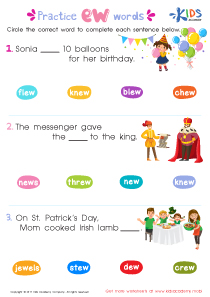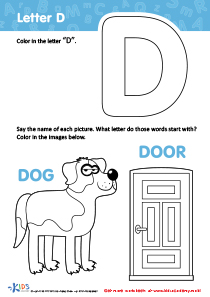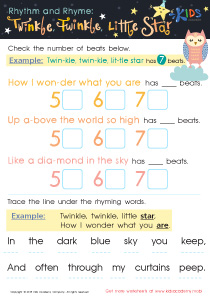Easy Where You Live Quizzes for Ages 4-5
4 results
4 filtered results
Clear all filters4 filtered results
-
From - To
Introducing our "Easy Where You Live" interactive assessment quizzes, specially designed for children ages 4-5. These engaging quizzes not only test your child's understanding of their immediate environment but also reinforce learning through immediate feedback. Tailored to young learners, our quizzes make learning about the places they live both fun and educational. Whether it's identifying different types of homes or understanding the roles within a community, our easy-to-navigate quizzes are perfect for little explorers eager to learn more about their world. Dive into our "Easy Where You Live" quizzes and watch your child's knowledge and curiosity grow!
Easy Where You Live for Ages 4-5 is an outstanding educational resource designed to captivate the minds of young learners, making it an invaluable tool for children in their formative years. This interactive platform transforms the traditional learning experience into an engaging journey of discovery about one’s immediate surroundings, laying a foundational understanding of geography, culture, and community in a way that is both fun and accessible to children aged 4 to 5.
Understanding the environment where one lives is crucial for the cognitive and social development of young children. It aids in nurturing a sense of identity, belonging, and curiosity about the world. Easy Where You Live brings this aspect of learning to life through colorful quizzes, interactive games, and captivating stories that are specifically tailored for Ages 4-5. This approach not only enhances memory retention but also encourages children to explore and ask questions about their surroundings.
One of the most significant advantages of Easy Where You Live for Ages 4-5 is its use of age-appropriate language and visuals that resonate with young learners. The quizzes are designed to be easy to understand yet challenging enough to stimulate critical thinking and problem-solving skills. Through these interactive assessments, children can learn about different types of housing, local animals, plants, and important landmarks in their community. This not only broadens their knowledge but also enhances their vocabulary and language skills, which are crucial at this developmental stage.
Safety and understanding one's locality are also emphasized through these quizzes. Children learn about important places such as the fire station, the police station, and hospitals, understanding their roles within the community. This knowledge fosters a sense of security and awareness, which is essential for their well-being.
Moreover, Easy Where You Live for Ages 4-5 promotes inclusivity and diversity. Children are introduced to various cultures and living situations around the world, expanding their understanding and acceptance of differences from an early age. This global perspective prepares them to be open-minded and respectful individuals in an increasingly interconnected world.
The interactive quizzes are also a fantastic tool for parent-child bonding. They provide a platform for discussions about the child's immediate environment and beyond, allowing parents to share personal stories and insights that further enrich the learning experience. This not only strengthens the bond between parent and child but also reinforces learning through real-life connections.
Additionally, the feedback system within Easy Where You Live is designed to encourage positive reinforcement, motivating children to engage with the content actively. The instant feedback provided after each quiz helps children understand their mistakes and learn from them, fostering a growth mindset that is beneficial throughout their educational journey.
In conclusion, Easy Where You Live for Ages 4-5 is more than just an educational resource; it is a gateway to a lifelong journey of curiosity and learning about one’s community and the wider world. By making learning interactive, fun, and relevant, it significantly contributes to the holistic development of children, equipping them with knowledge, skills, and attitudes that will serve them well throughout their lives.











